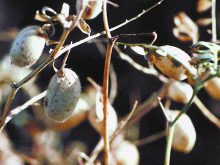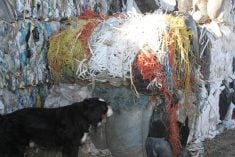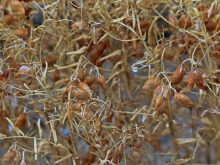HONG KONG – China is still buying cargoes of soybeans, but some analysts are concerned that the spread of the Severe Acute Respiratory Syndrome virus could cut the country’s voracious demand for the grain.
China is the country with the most cases of SARS.
Authorities have shut schools in Beijing and on the weekend forced cinemas and other places of entertainment to close to limit the risk of spreading the disease. The disease is also present in several provinces.
Travel is being discouraged, and people are avoiding restaurants.
Read Also

Regulatory model “broken” in Canada – says BASF
Taking a decade to assess the safety of glufosinate-ammonium, a herbicide branded as Liberty that has been used by farmers for years, embodies what’s wrong with Canada’s regulatory system, BASF said.
Traders are beginning to wonder if the restrictions will start to cut into meat demand and eventually into the demand for soy meal in livestock feed.
“The SARS problem is quite serious here. People have cancelled a lot of trips inside China. People don’t go to restaurants …. Lots of foreigners have cancelled trips to China,” said one trader.
“Theoretically, demand could be very large. But now we have the SARS outbreak,” the trader said.
China was on track to import as much as 18.5 million tonnes of soy in the crop year, with more than 10 million tonnes already booked from South America.
It has bought about 7.5 million from the United States.
The demand has supported world oilseed prices burdened by record large South American production.
While fears connected to SARS mount, the reality is that soybeans continue to arrive at China’s ports.
Traders said China had bought another three to four cargoes of South American beans over the past 10 days as high domestic soymeal prices pointed to much stronger domestic demand than initially expected.
The traders agreed Chinese domestic output of soybeans was set to rise, possibly as much as five percent above the 16.9 million tonnes produced in 2002, as strong prices over the past year were encouraging farmers to plant more of the oilseed instead of corn.
Helped by depleted stocks of Chinese beans, domestic futures prices climbed to the equivalent of $350.70 US per tonne on April 28, up from $336.10 a month ago and $258.80 a year ago.
“Soy planting will definitely increase,” said a Shanghai trader. “A five percent increase sounds reasonable, though it’s too early to make an estimate.”
Some traders said the higher soy planting, coupled with dry weather, might reduce the country’s 2003 corn output back toward 115 million tonnes – similar to the 114 million tonnes of drought-hit 2001 and down from 124 million last year.
“Maybe it is about 114-115 million tonnes, though this is my personal opinion,” said an official at Jilin Grain Group, one of the country’s two authorized maize exporters.
“There have been some delays in planting this year as the soil moisture is not so good,” the official said.














